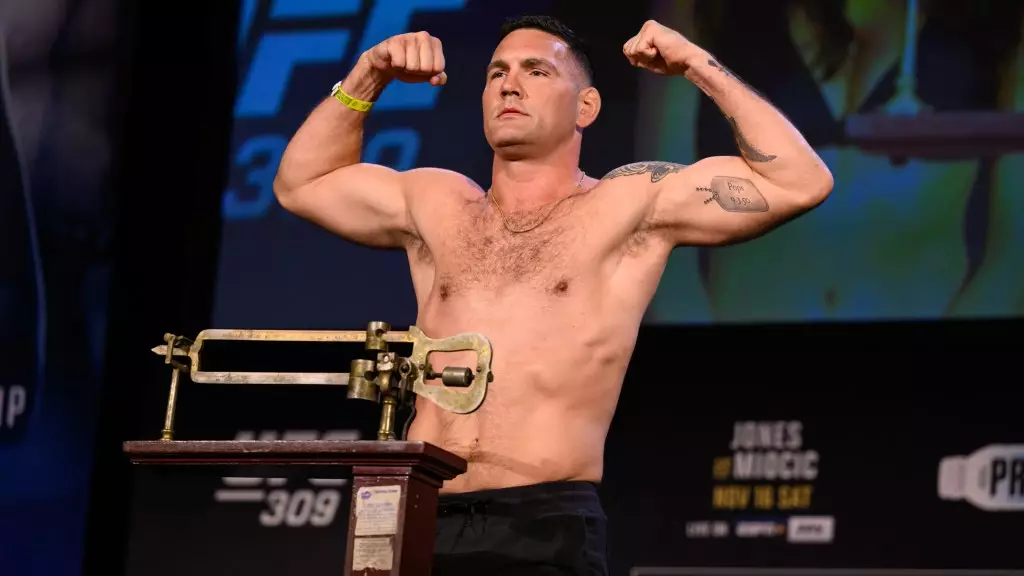In the world of mixed martial arts, particularly in the UFC, the stakes are incredibly high, not only in terms of physical risk but also financially. Chris Weidman, a seasoned MMA fighter, recently faced an unfortunate situation when his highly anticipated fight against Eryk Anders was abruptly canceled. Scheduled to take place at Madison Square Garden, the match was deemed off due to Anders falling ill and being deemed unfit to compete. For anyone in the sport, such sudden changes can lead to overbearing disappointment, especially when one has invested countless hours in preparation and has friends and family flying in to support them.
The implications of this cancellation went beyond mere disappointment for Weidman. As he revealed in an interview on “The Ariel Helwani Show,” his financial compensation for this canceled fight would not be fully honored. This raises an essential question regarding fighter compensation policies within the UFC. Weidman openly expressed his frustration: “I’m not getting my full purse. I’ll put that out there, which it’s tough,” he stated. From his perspective, having adhered to all contractual obligations while still facing financial penalties seems inherently unjust. The emotional investment and public commitment involved in preparing for a fight deserve recognition, especially when unforeseen circumstances derail those plans.
Despite this setback, Weidman acknowledged that the UFC made efforts to find a last-minute replacement. However, the New York Athletic Commission’s stringent regulations on short-notice fights complicated these efforts, which ultimately left Weidman without an opponent or a complete purse. He recounted that the organization sought out fighters who had competed earlier that day, illustrating their commitment to ensuring that he still had the opportunity to fight. However, the complexities of regulation made that impossible.
Fortunately for Weidman, his fight against Anders is now rescheduled for UFC 310, set for December 7 at the T-Mobile Arena in Las Vegas. While this upcoming event provides another chance for Weidman to showcase his skills, the lingering frustrations regarding compensation and contractual obligations may stay with him. Fighters like Weidman, who show up prepared and healthy, are often left questioning the equity of fight promotion finances when cancellations occur through no fault of their own.
Weidman’s situation highlights a critical issue within the MMA landscape, accentuating the need for transparent and fair compensation practices for fighters. As the sports industry continues to evolve, it is essential to advocate for policies that better protect the financial interests of athletes, ensuring that they receive appropriate compensation for their efforts, even when circumstances lead to unexpected cancellations. In an industry where fighters invest so much and face such unique challenges, a more equitable financial structure would ensure their dedication and hard work are duly rewarded.

